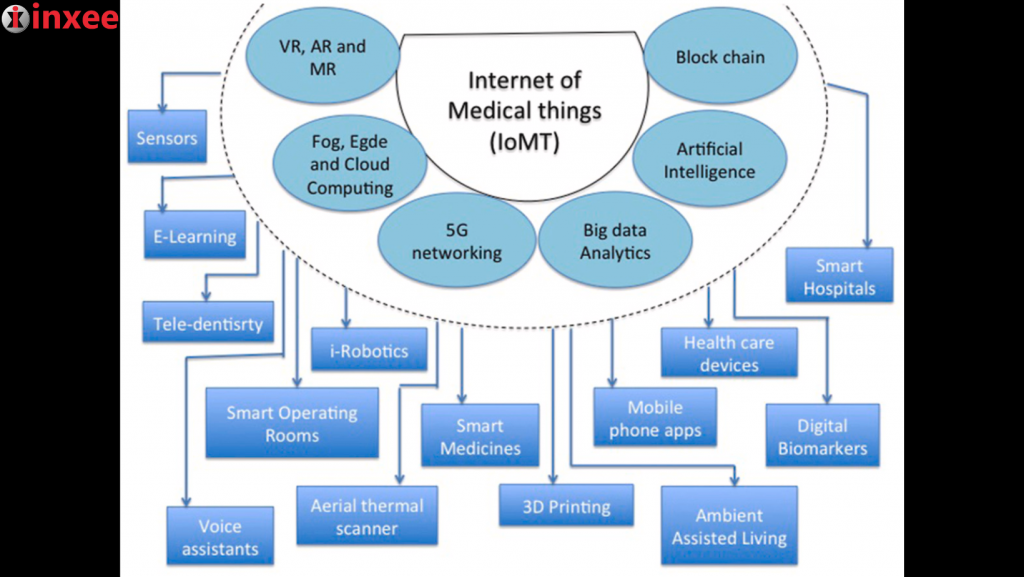Potential of Internet of Medical Things (IoMT) Applications in Building a Smart Healthcare System: A Systematic Review
The Internet of Medical Things (IoMT) has emerged as a transformative technology with the potential to revolutionize the healthcare industry. This systematic review aims to explore the potential of IoMT applications in building a smart healthcare system by analyzing existing literature and studies.
The review identified several key areas where IoMT can have a significant impact on healthcare:
- Remote Patient Monitoring: IoMT enables continuous remote monitoring of patients’ vital signs, medication adherence, and disease progression. This real-time monitoring allows healthcare providers to intervene proactively, detect early warning signs, and provide timely interventions, leading to improved patient outcomes and reduced hospitalizations.
- Telemedicine and Telehealth: IoMT facilitates virtual consultations, remote diagnosis, and telemedicine services. Through secure and reliable connectivity, healthcare professionals can remotely examine patients, provide consultations, and monitor their progress. This not only improves access to healthcare in underserved areas but also reduces the burden on healthcare facilities.
- Chronic Disease Management: IoMT devices, such as wearable sensors and smart implants, enable continuous monitoring of chronic conditions like diabetes, cardiovascular diseases, and respiratory disorders. These devices collect real-time data and send alerts to healthcare providers in case of abnormalities, allowing for proactive interventions and personalized treatment plans.
- Medication Management: IoMT solutions help in improving medication adherence through smart pill dispensers, wearable devices, and mobile apps. These technologies remind patients to take their medication, track compliance, and provide data to healthcare providers, enabling better medication management and reducing medication errors.
- Data Analytics and Predictive Analytics: The vast amount of data generated by IoMT devices can be leveraged for advanced analytics and predictive modeling. This enables healthcare providers to identify trends, predict disease outbreaks, optimize resource allocation, and personalize treatment plans based on individual patient data.
- Operational Efficiency: IoMT applications streamline healthcare operations by automating administrative tasks, optimizing resource utilization, and improving workflow processes. This leads to cost savings, increased productivity, and improved overall efficiency in healthcare delivery.
However, the review also identified challenges that need to be addressed for the successful implementation of IoMT in healthcare. These challenges include data security and privacy concerns, interoperability issues, regulatory compliance, integration with existing healthcare systems, and the need for robust infrastructure and connectivity.
In conclusion, the systematic review highlights the significant potential of IoMT applications in building a smart healthcare system. The adoption of IoMT technologies can enhance patient care, improve healthcare outcomes, increase operational efficiency, and transform the way healthcare is delivered. However, careful attention must be given to address the challenges associated with data security, interoperability, and regulatory compliance to ensure the successful implementation of IoMT in healthcare settings.










Leave a Reply